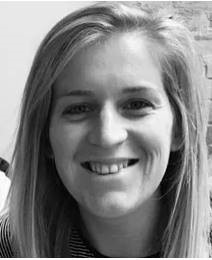

For International Women in Engineering Day 2021, we spoke to a number of selected women to learn more about their journey within the industry. Today, we speak to Laura Brooks BA (Hons) MCHIT MTPS, Transport Planner at WSP and Researcher for the Gender Equality Toolkit In Transport.
As part of my undergraduate degree (BA (Hons) Human Geography at Lancaster) I completed a dissertation on the topic of smart motorways. Through undertaking this I came across the role and the rest is history.
I really enjoy the varied workload and the opportunity to work on projects which can make a difference to the lived experiences of people’s everyday lives.
I really enjoy the varied workload and the opportunity to work on projects which can make a difference to the lived experiences of people’s everyday lives.
I feel fortunate to be one of the few however I do feel things are changing (albeit slowly). The consequence of this does mean that the needs are not always considered in transport projects which I do think is also starting to change.
Luckily, I have been fortunate to not encounter any challenges in my career to date attributed to my gender.
As part of research conducted as part of our Gender Equality Toolkit attracting female talent was identified by existing transportation professionals as the most useful area to help transportation professionals to better account for different gender needs in their work.
As part of research conducted as part of our Gender Equality Toolkit attracting female talent was identified by existing transportation professionals as the most useful area to help transportation professionals to better account for different gender needs in their work. By creating a more diverse industry it will help to ensure that the schemes we design reflect the diverse environment that we live in to help ensure these schemes are inclusive and equitable.
Our research also highlighted that companies and local authorities must do more to support female professionals, in particular supporting returners to work and providing support to parents of all genders to enable parenting to be a shared responsibility.
I think more needs to be done on a societal level to prevent job roles being gendered and stereotypes being assigned and associated to roles. Although ‘invisible’ these labels can act as barriers which can play a big role in the decision making of people when choosing career paths to go down with, with people scared of how choosing a particular role may result in their peers labelling/stigmatising them.
On a company/organisation level more need to be done to ensure workplaces promote and enact gender equality on a day to day basis and not just once a year on international women’s day. Unless action occur on a day to day basis it is piecemeal and meaningless.
Companies/industries also need to do more to showcase how interesting and varied job roles are in the transport sector to highlight how transport planning isn’t all hardcore engineering, hi-vis and mathematical equations.
On a company/organisation level more need to be done to ensure workplaces promote and enact gender equality on a day to day basis and not just once a year on international women’s day. Unless action occur on a day to day basis it is piecemeal and meaningless.
No.
Do it. There are many great opportunities within the sector and the work can be incredibly interesting and rewarding!
Laura is part of the team who have developed the Gender Equality Toolkit In Transport (GET IT) a finalist in this years The Future Transport Visions Group competition.
The Future Transport Visions Group is an annual research and development competition funded by the Rees Jeffreys Road Fund that encourages early career professionals across the transport industry to explore the challenges and opportunities posed by ongoing changes in the world around them.
For more information visit here.
To see if the Gender Equality Toolkit is successful secure your place on the FTVG Project Showcase and Awards event July 6th by visiting here.

The opinions expressed are those of the author. They do not purport to reflect the opinions or views of the CIHT or its members. Neither the CIHT nor any person acting on their behalf may be held responsible for the use which may be made of the information contained therein.